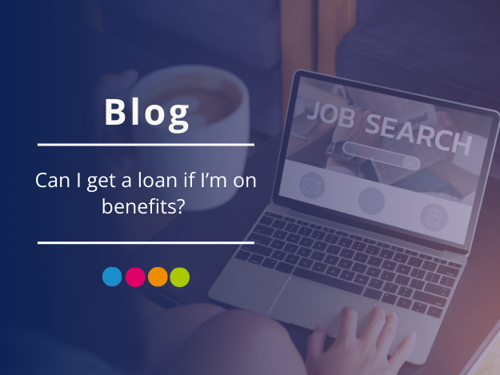
If you're receiving benefits and need to borrow money, you may wonder if it's possible to get a loan. In this guide, we’ll explore the different types of loans you might be eligible for and how to apply for one when you’re on benefits.
Can I get a loan if I’m on benefits?
Yes, it is possible to get a loan while receiving benefits, but it may be more difficult. Lenders will usually consider your income, credit history, and other factors when reviewing your application. However, because benefits are often considered more limited than regular income, you might not be offered the most competitive products, such as lower interest rates.
Although finding the right lender may take more effort, there are providers who specialise in working with people on benefits, so it's important to compare your options.
Can I get a loan if I’m on Universal Credit?
Getting a loan on Universal Credit is possible. Some lenders may be more flexible and willing to accept it as a source of income, while others might not. The key is to find a lender that understands your situation and is comfortable working with your specific benefits.
Can I get a loan on PIP?
Yes, if you’re receiving PIP, you may still be eligible for a loan. Many lenders will take long-term benefits, like PIP, into account when assessing your application. However, your options may be more limited, and not all lenders will accept it. Still, there are lenders who specialise in helping people with disability benefits, so it's a good idea to research your options.
What benefits count as income?
Some of the benefits that may be accepted include:
- Universal credit;
- Child benefit;
- Disability living allowance / PIP;
- Incapacity benefit;
- Maternity allowance;
- Carers allowance.
Keep in mind that each lender has different rules, and some may only accept certain benefits or they may ask for extra documents. Always check with the lender to see whether they will accept you.
What type of loans may I get if I’m on benefits?
There are a few types of loans you might be able to consider. This could include personal loans or loans secured against your property. The best choice for you will depend on your needs and how much money you want to borrow.
For smaller amounts, a personal loan is a good option. These loans usually cover lower loan amounts, as a property isn't taken as security. Additionally, the approval process typically involves fewer checks. However, it can be harder to get approved for this option, especially if you have complex circumstances.
If you need to borrow a larger sum, a secured loan could be a better choice. These loans are backed by your property, which means lenders see them as less risky. As a result, they may be more willing to approve you and may offer better terms. However, keep in mind that if you fail to repay the loan, you risk losing the property you used as security.
How to apply for a loan if you’re on benefits
Applying for a loan while on benefits is similar to applying for a loan as anyone else. First, you’ll need to decide whether to work with a broker or apply directly to a lender.
If you're unsure which loan options are best for you, a broker can help. They’ll look at your situation and connect you with lenders who might accept benefits as income. Brokers can also speed up the process and offer you more loan choices. However, keep in mind that they charge a fee, so make sure it’s something you can afford.
Alternatively, you can apply directly to a lender. This means you'll only see the lender’s own loan products. If you don’t qualify for one, you’ll have to search for other options, which might take longer. While applying directly is simpler, it may offer less flexibility compared to working with a broker.
Once you've chosen a provider, whether it's a broker or lender, you can move forward with your application. You’ll need to provide any required documents and wait for a decision. Be ready to clearly explain your situation, so the lender can understand your financial position.
Summary
In summary, getting a loan while on benefits is definitely possible, but it may take some extra work. It's important to research the different types of loans and compare lenders to find an option. Just be sure to carefully review the terms, fees, and repayment plans before moving forward.
Loans are secured against property - Think carefully before securing other debts against your home. Your home may be repossessed if you do not keep up repayments on a mortgage or any other debt secured on it.




